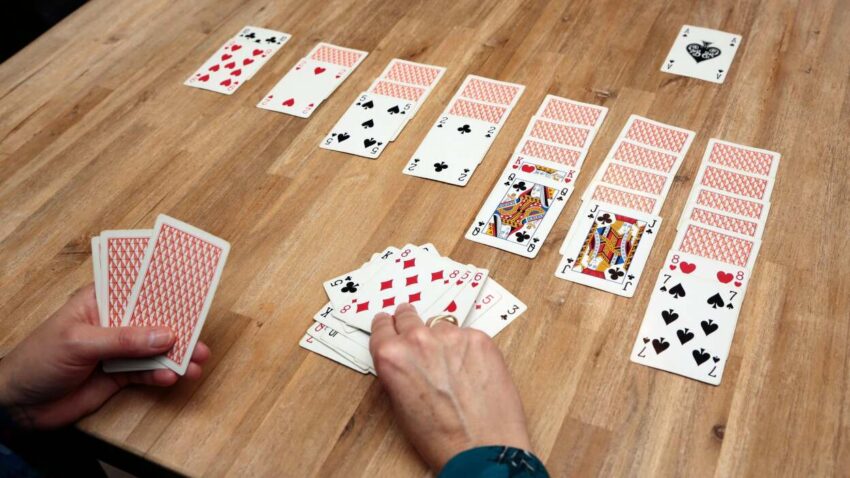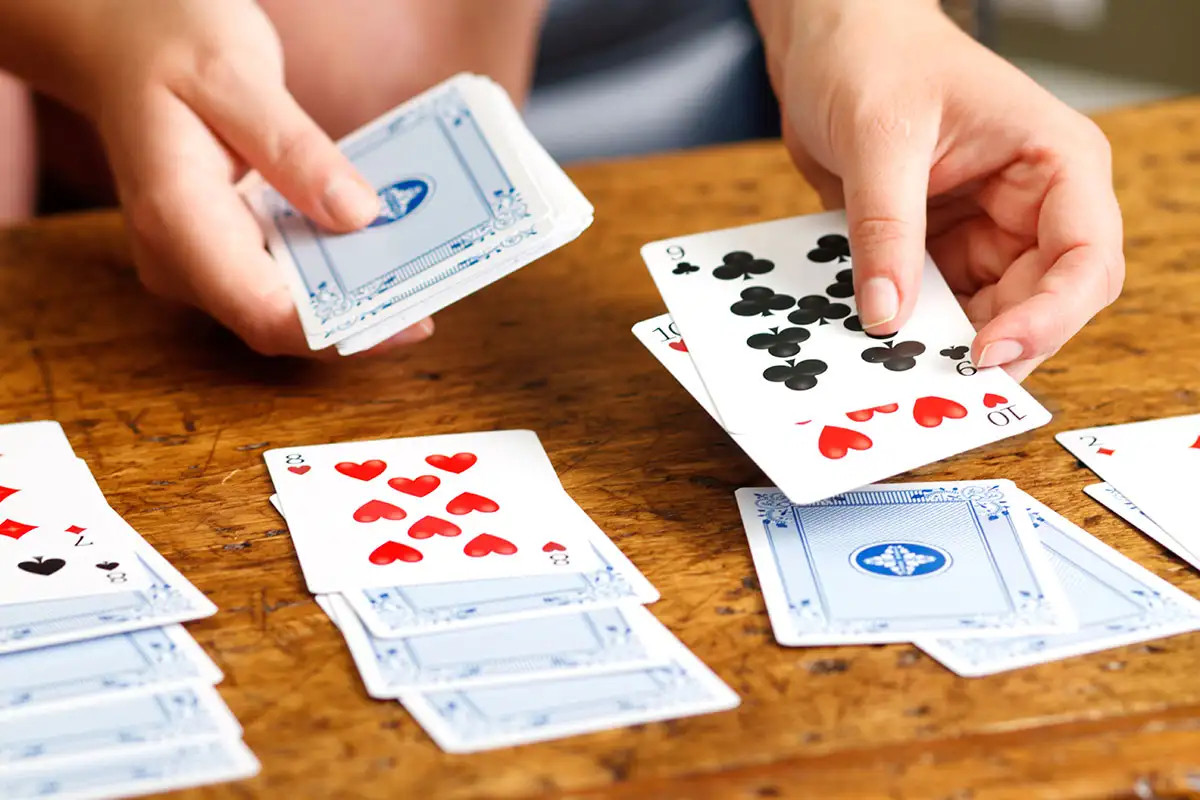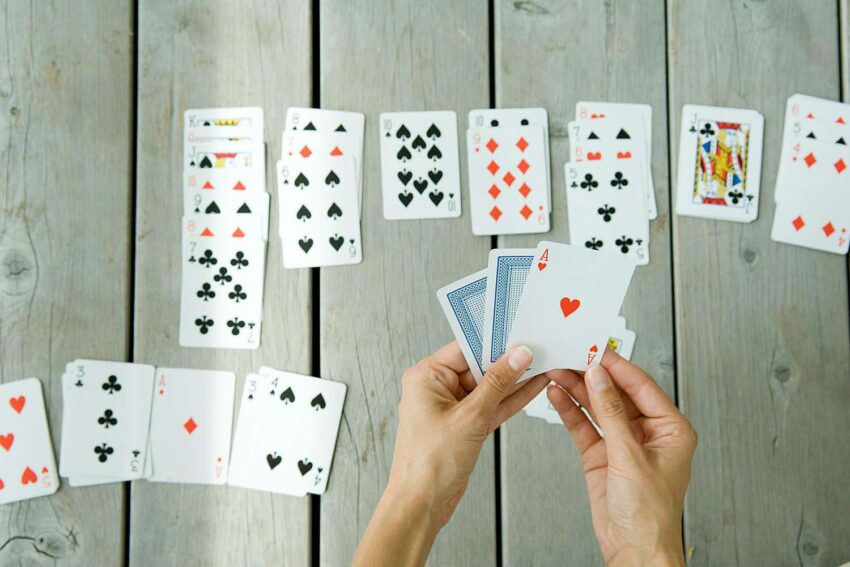Solitaire, a card game played alone, offers more than just a way to pass the time. Often seen as a relaxing pastime, this classic game is packed with hidden benefits that stretch far beyond entertainment. One of the most valuable aspects is its ability to hone problem-solving skills, skills that can carry over into real-life challenges.
By delving into how solitaire works and analyzing the strategies involved, it becomes clear that this game is a practical tool for sharpening the mind and improving decision-making in various aspects of daily life.
The Cognitive Demands of Solitaire
Solitaire’s simplicity disguises the mental engagement required to play it well. While the rules are straightforward—move cards into specific arrangements following suit and rank—each game presents a new puzzle. The player must carefully assess the current layout, plan several moves ahead, and adjust when unforeseen challenges arise.
At its core, solitaire revolves around resource management and critical thinking. You must make decisions about when to hold back or when to move a card that could either open new opportunities or block future moves. Each choice has potential consequences, demanding both caution and risk assessment. These cognitive tasks mirror real-life problem-solving, where identifying key resources, forecasting outcomes, and navigating unexpected setbacks are part of everyday decisions.

Enhancing Strategic Thinking
In solitaire, not every card can be moved immediately. Players need to weigh short-term gains against long-term objectives, a form of strategic thinking essential for success in the game. A move that seems advantageous at first glance might close off better options later. As a result, players develop the ability to prioritize their decisions, balancing between what’s immediately possible and what might yield greater success down the line.
This strategic element of solitaire translates into real-world scenarios. For example, in a work environment, knowing when to act and when to wait for better opportunities is vital. Prioritizing tasks, assessing risk, and making decisions based on limited information are daily challenges faced by professionals across industries. The ability to strategize effectively in solitaire mirrors the critical thinking needed to solve complex problems in business, relationships, or personal life.
Boosting Patience and Persistence
Another key aspect of solitaire that ties into real-life problem-solving is patience. Not every game of solitaire is winnable, and this can be frustrating for new players. However, seasoned solitaire enthusiasts know that success requires a mix of persistence and patience. Sometimes, the solution isn’t immediately clear, and multiple attempts are necessary before achieving the desired result.
In everyday life, problem-solving often requires the same level of endurance. Whether trying to navigate a challenging work project or resolving personal issues, success rarely comes overnight. Solitaire reinforces the idea that persistence pays off. The game encourages players to keep trying new strategies and to maintain a steady, thoughtful approach even in the face of setbacks.
Learning to stay calm and collected while analyzing the situation is a powerful skill both in solitaire and beyond. Those who practice the game regularly may find themselves less likely to give up when faced with challenges, developing the grit necessary to push through adversity.

Developing Pattern Recognition
As players gain experience, they start to recognize patterns in solitaire. Recognizing when a sequence of moves is likely to lead to success—or failure—is an essential skill in the game. The ability to identify patterns allows for faster, more efficient decision-making, reducing the likelihood of getting stuck.
Pattern recognition is a crucial cognitive skill that has applications in various areas of life. From identifying trends in business data to anticipating customer needs or even understanding social dynamics, the ability to notice patterns and predict outcomes is invaluable. In this sense, solitaire serves as a mental exercise that strengthens this ability, making it easier to connect the dots in complex situations.
Improving Focus and Attention to Detail
Solitaire demands focus. One missed opportunity or a single overlooked move can result in a dead-end game, forcing players to start over. Paying attention to detail is critical, as each card plays a role in determining whether the game can progress or not. This level of concentration sharpens a player’s ability to notice small but important details, a skill that directly translates into more effective problem-solving in other areas of life.
In the workplace, for instance, attention to detail can make or break a project. Whether it’s catching a minor error in a contract, ensuring accuracy in data entry, or noticing a small but significant shift in market trends, the ability to focus intently on the task at hand leads to higher-quality outcomes.
Applying Solitaire Skills to Real-Life Scenarios
The problem-solving lessons from solitaire are not confined to the game itself. The skills developed through regular play—strategic thinking, patience, persistence, pattern recognition, and attention to detail—can be applied to various real-world situations. From managing personal finances to resolving conflicts at work, the mental processes involved in playing solitaire provide valuable practice for dealing with life’s challenges.
For instance, a business owner may apply the same resource management techniques learned in solitaire to allocate limited company resources efficiently. A student working through a challenging research project can benefit from the game’s emphasis on persistence and careful planning. Even in personal relationships, the ability to recognize patterns and strategize can help improve communication and problem-solving between partners.

Conclusion ─ Solitaire as a Training Ground for the Mind
While often dismissed as a mere distraction or way to pass idle time, solitaire is much more than that. Its blend of strategic thinking, patience, and mental agility makes it an excellent training ground for sharpening problem-solving skills. By engaging with the game thoughtfully, players can develop a range of cognitive abilities that are useful not only in gaming but in everyday life.
So, the next time you sit down to play solitaire, remember that you’re not just moving cards around. You’re refining your mind, preparing yourself for the many challenges that life may throw your way.
